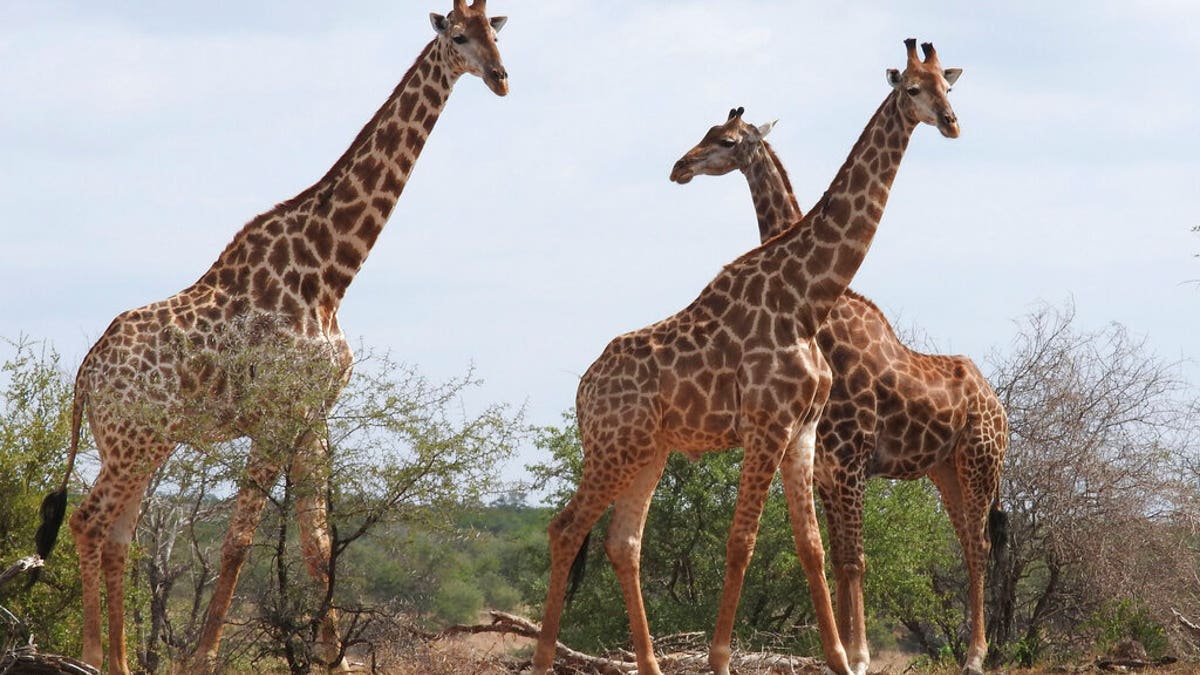Fox News Flash top headlines for August 22
Fox News Flash top headlines for August 22 are here. Check out what's clicking on Foxnews.com
National representatives at an international wildlife conference in Geneva voted Thursday to protect giraffes as an endangered species for the first time, drawing praise from conservationists and protests from some sub-Saharan African countries.
The vote by signatories of the Convention on International Trade in Endangered Species (CITES) at the World Wildlife Conference paves the way for the measure's likely approval by its plenary next week.
The plan would regulate the global trade in giraffe parts -- including hides, bone carvings, and meat -- but stopped short of a full ban. It passed 106-21 with seven abstentions.

Giraffes in Kriger National Park, South Africa. A wildlife panel moved to protect giraffes as an endangered species Thursday. (AP, File)
The Wildlife Conservation Society said it was concerned about threats including drought, illegal killings, and trade in giraffe body parts, that have triggered a population decline. A key African conservationist said more protection could help reverse that trend, as the move would help track numbers of giraffes.
"The giraffe [population] has experienced over 40 percent decline in the last 30 years, said Maina Philip Muruthi of the African Wildlife Foundation. "If that trend continues, it means that we are headed toward extinction."
But not all African countries were on board.
"We see no reason as to why we should support this decision, because Tanzania has a stable and increasing population of giraffes," said Maurus Msuha, director of wildlife at the Tanzanian Ministry of Natural Resources and Tourism. "Over 50 percent of our giraffe population is within the Serengeti ecosystem, which is well protected. Why should we then go for this?"
TRUMP ADMINISTRATION OVERHAULS ENDANGERED SPECIES ACT IN BED TO REDUCE RED TAPE
The meeting in Geneva came after the Trump administration announced earlier this month plans to roll back parts of the U.S. Endangered Species Act — a landmark law which protects hundreds of species of animals and plants, including the bald eagle.
Many Republicans have argued the law has been too broad.
CLICK HERE TO GET THE FOX NEWS APP
As part of the planned changes, officials would be able to publicly attach a cost to saving an animal or plant for the first time, and blanket protections for creatures newly listed as threatened would be removed.
On Wednesday, more than half a dozen environmental groups filed a lawsuit against the Trump administration to stop the changes.
Fox News Andrew O'Reilly and The Associated Press contributed to this report.









































